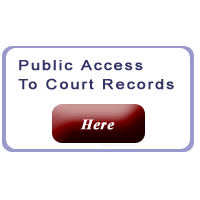Lawmakers Kill Proposed New Limits on Public Access to Court Records

It is, apparently, believed in some quarters that the public has too much access to state public records. Especially court records, like case filings and judicial rulings. Daily requests for information by lawyers, journalists and interested parties are thought to burden public employees and cost the state some money.
Back in March it became known that Governor Jerry Brown’s proposed budget contained a provision to levy a $10 fee on anyone requesting a court record. The seemingly small fee is actually a large impediment to journalists who routinely request access to 10 or more documents in the course of a day.
Researchers working for law firms, landlords and companies who scour court records for information on debts, probate and evictions would also feel the impact.
The proposal made its way through the Legislature in the form of a trailer to the annual budget bill and a version that included a vague fee waiver for journalists was passed by a Senate subcommittee. But the Assembly budget committee rejected it and a joint budget conference committee of both chambers adopted the Assembly version of the trailer bill.
The fee was dead, but not forgotten by those who opposed it.
The proposal made its way into the legislation at the behest of the Administrative Office of the Courts, which argued that the cash-strapped judiciary needed the revenue. But critics of the fee, even those who sympathize with the financial beating the courts have received the past five years, found it unconscionable.
“Most agreed that it would be horrible public policy,” Jim Ewert, general counsel for the California Newspaper Publishers Association, told the Courthouse News Service (CNS). The $10 fee would add up quickly because it would be charged for each name, file or other information requested. CNS estimated that reporters make 30 to 40 inquiries a day at the San Jose Superior Court and 60-70 in San Francisco.
Newspapers across the state editorialized against it. “Plugging budget gaps should not entail trade-offs that damage fundamental principles of justice and good government,” the Riverside Press-Enterprise wrote in March. “Open access is key to ensuring the courts’ impartiality and credibility.”
Many of the same arguments could be heard in January when the Judicial Council of California considered a change to its Rules of Court that would have delayed for weeks the availability of (electronic) e-filings. Instead of making this growing source of information instantly available, as is the case now, e-filings would first have to be processed and reviewed by any number of bureaucrats before being designated “officially filed,” a process of indeterminate length.
The California Newspaper Publishers Association didn’t like that measure either. It complained to the council, along with the First Amendment Coalition, Californians Aware and Courthouse News Service, that changing the designation of when a document was officially filed was simply meant to “provide administrators with justification for denying public access to records.”
–Ken Broder
To Learn More:
California Legislature Kills $10 Fee for Search of Public Court Records (by Maria Dinzeo, Courthouse News Service)
Court-Proposed Fees Would Limit Public Access to Records (by Ken Broder, AllGov California)
Courts Accused of Trying to Limit Public Access to Records (by Ken Broder, AllGov California)
- Top Stories
- Controversies
- Where is the Money Going?
- California and the Nation
- Appointments and Resignations
- Unusual News
- Latest News
- California Forbids U.S. Immigration Agents from Pretending to be Police
- California Lawmakers Urged to Strip “Self-Dealing” Tax Board of Its Duties
- Big Oil’s Grip on California
- Santa Cruz Police See Homeland Security Betrayal in Use of Gang Roundup as Cover for Immigration Raid
- Oil Companies Face Deadline to Stop Polluting California Groundwater





